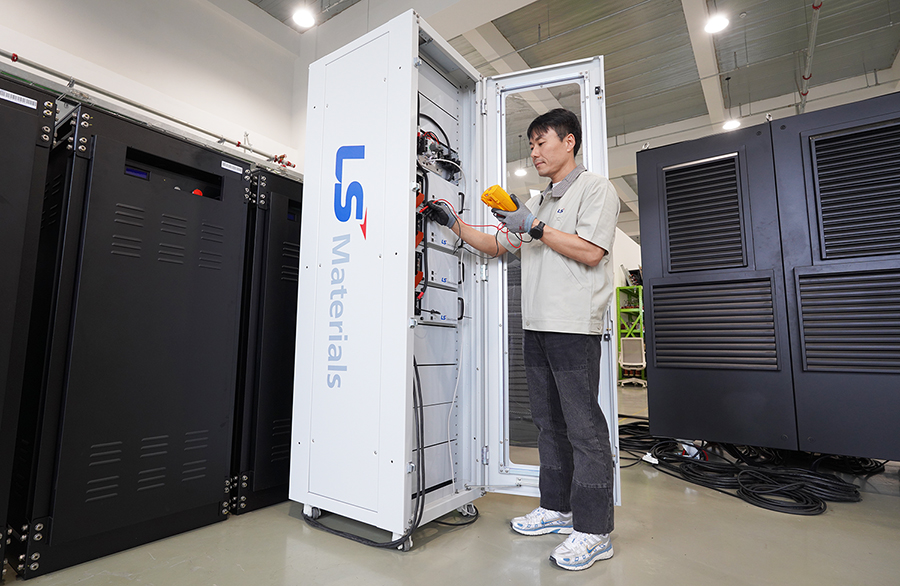Aktualności
| Title | LS Materials develops Korea's first ESS for electric vehicle charging stations |
|---|---|
| Date | 2025-05-29 |

Photograph) LS Materials' ESS system for electric vehicle charging stations
■ High-power capacitor-based H-ESS solves multiple charging and fire risks
■ System reduces installation costs for charging infrastructure and enhances responsiveness to high-load environments
■ Company plans to expand solutions for AI and renewable energy, enter North American and European markets in full scale
LS Materials (CEO Hong Young-ho) announced on the 29th that it has developed Korea’s first hybrid energy storage system (H-ESS) for electric vehicle charging stations in collaboration with LS Cable & System.
The newly developed H-ESS is a dedicated solution for electric vehicle charging stations that addresses their limitations, such as power overload, fire risk, and high infrastructure construction costs.
Existing ESSs have the disadvantages of high risk and high operating costs when used in electric vehicle charging stations due to heat generation during repeated rapid charging/discharging, rapid performance degradation, and a short life.
LS Materials’ H-ESS integrates capacitors and lithium-ion batteries specialized for high-speed charging and discharging, enabling stable charging of multiple vehicles even during peak hours.
The new ESS minimizes heat generation even when there is a sudden change in load, thereby reducing the risk of fire, and guarantees a 5 to 10 times longer life than existing ESSs. The miniaturized ESS reduces both the installation area and cost, ensuring higher efficiency in infrastructure construction.
This product can be operated efficiently in environments with very high demand for rapid charging, such as highway rest areas, electric bus garages, and urban complex charging stations.
This development project was promoted as a national project of the Ministry of Trade, Industry and Energy to improve electric vehicle charging infrastructure. LS Materials was in charge of overall system development, and LS Cable & System developed the control and temperature monitoring technology.
Hong Young-ho, CEO of LS Materials, said, “We will expand the application of this technology to areas that require high-speed responses, such as AI data centers and renewable energy-linked ESSs, and target the global market with a focus on North America and Europe.”




